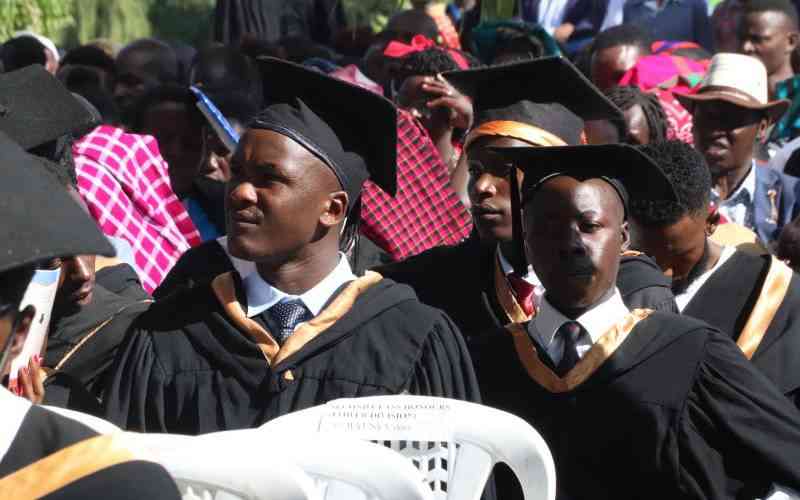×
The Standard e-Paper
Kenya’s Boldest Voice

Students graduate from Tom Mboya University in Homa Bay. [James Omoro, Standard]
The future of over 68,000 state-sponsored students hangs in the balance as government funding in private universities dipped.